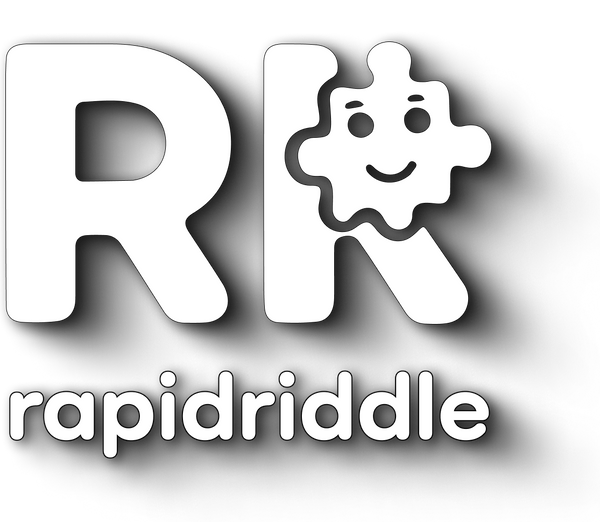Building Brilliant Minds: How Geometric Puzzles Transform Early Childhood Development
Share
Every parent wants to give their child the best possible start in life. What if we told you that something as simple as geometric puzzles could significantly boost your child's cognitive development, motor skills, and future academic success? Recent research reveals that children aged 3–6 who regularly engage with 2D and 3D geometric puzzles show remarkable improvements in multiple areas of development.
The Critical Early Years: Why Ages 3–6 Matter Most
During early childhood, your child's brain is developing at an unprecedented rate, forming over 1,000 neural connections every second. This is the optimal time to introduce activities that will shape their cognitive abilities for life. Geometric puzzles provide the perfect combination of challenge and engagement to maximize this critical developmental window.
Research-Proven Benefits for Young Minds
Cognitive Development Breakthrough
Studies involving preschool children demonstrate that puzzle educational games can stimulate early childhood cognitive development with statistically significant results. Children who participated in geometric puzzle interventions showed dramatic improvements in cognitive levels, with research indicating p-values of 0.0000 – demonstrating extraordinarily strong scientific evidence.
Motor Skill Mastery
Geometric puzzles help children develop crucial fine motor skills and hand-eye coordination. As little fingers manipulate puzzle pieces, they're strengthening the neural pathways that connect visual perception with motor control – skills essential for writing, drawing, and countless daily activities.
Spatial Skills Foundation
Research shows that children develop fundamental spatial skills including:
- Symbolic representation: Understanding how shapes represent real objects
- Position and location awareness: Recognizing where objects belong in space
- Perspective taking: Seeing things from different viewpoints
- Scaling concepts: Understanding size relationships
- Direction and navigation: Building internal maps of space
These early spatial skills provide the foundation for later success in mathematics, science, and engineering.
The Academic Advantage: Setting Up STEM Success
Mathematical Foundation Building
Studies demonstrate that geometric puzzle interventions significantly improve children's ability to recognize and understand basic geometric concepts. This early geometric understanding strengthens an important foundation for their future mathematical development throughout their educational journey.
Deep Thinking Development
Remarkably, research with children as young as 3–4 years found they are capable of exhibiting advanced geometric thought – more advanced than previously thought possible for children of this age. This suggests that with proper stimulation through geometric activities, young children can develop surprisingly sophisticated spatial reasoning abilities.
Enhanced Cognitive Flexibility
Early exposure to geometric puzzles promotes:
- Logical thinking: Learning to approach problems systematically
- Creativity: Finding multiple solutions to spatial challenges
- Mathematical abilities: Building number sense and geometric understanding
- Pattern recognition: Identifying relationships and sequences
- Analytical skills: Breaking down complex problems into manageable parts
Choosing the Right Puzzles for Your Child
Ages 3–4: Simple Shapes and Sorting
- Large, chunky geometric shapes for safe handling
- Simple sorting activities by color, shape, and size
- Basic pattern completion puzzles
- Shape-matching boards with large knobs
Ages 4–5: Increasing Complexity
- Multi-piece geometric puzzles with 6–12 pieces
- 3D shape sorters and stacking toys
- Simple tangram-style puzzles
- Beginning jigsaw puzzles with geometric patterns
Ages 5–6: Advanced Challenges
- Complex tangram sets with multiple solutions
- 3D building blocks and construction sets
- Geometric pattern continuation activities
- Beginning logic puzzles with spatial elements
Maximizing the Benefits: Tips for Parents
Create a Supportive Environment
- Provide a quiet, well-lit space for puzzle activities
- Ensure age-appropriate difficulty levels to maintain engagement
- Celebrate successes and encourage persistence through challenges
- Make puzzle time a regular part of your daily routine
Engage with Purpose
- Ask open-ended questions about shapes and patterns
- Encourage your child to describe their problem-solving process
- Connect puzzle activities to real-world objects and situations
- Use geometric vocabulary naturally during play
Build Gradually
- Start with simpler puzzles and gradually increase complexity
- Allow plenty of time for exploration without pressure
- Rotate puzzle types to maintain interest and challenge different skills
- Combine individual and collaborative puzzle-solving experiences
The Long-Term Investment
The benefits of early geometric puzzle engagement extend far beyond the preschool years. Children who develop strong spatial skills early show:
- Higher performance in STEM subjects throughout school
- Enhanced problem-solving abilities in academic and life situations
- Improved confidence in tackling challenging tasks
- Better preparation for careers in science, technology, engineering, and mathematics
Starting Your Child's Geometric Journey
The research is clear: geometric puzzles offer unparalleled benefits for early childhood development. By introducing these powerful learning tools during the critical ages of 3–6, you're not just providing entertainment – you're investing in your child's cognitive future.
Every piece placed, every shape recognized, and every spatial problem solved is building the neural foundations that will support your child's learning and development for years to come. The geometric puzzle pieces of early childhood development fit together to create a picture of lifelong cognitive success.
Ready to give your child the developmental advantage they deserve? Explore our carefully curated collection of age-appropriate geometric puzzles, designed with early childhood development research in mind.
Research References
- The Use of Educational Puzzle Games for the Development of Cognitive Abilities of Children Aged 5–6 Years
- The Positive Effect of Educative Game Tools on Cognitive Levels of Pre-School Children (4–5 Years)
- New 'Young Geographers': Children's Cognitive Development Wayfaring Through the City Replica Project
- Efektivitas Penggunaan Alat Peraga Edukatif Puzzle Geometri
- System of Work on the Formation of Logical and Mathematical Competence via Puzzle Games
- Developing Deep Mathematical Thinking in Geometry with 3–4-year-olds
- The Project Method and Its Effect on the Ability to Recognize Geometric Shapes in Early Childhood
- Children's Geometric Understanding through Digital Activities
- The Impact of the "Treasure Game" on Geometric Thinking
- Development of Sensitivity to Geometry in Visual Forms
- Core Geometry in Perspective
- Origami and GeoGebra Activities Contribute to Geometric Thinking
